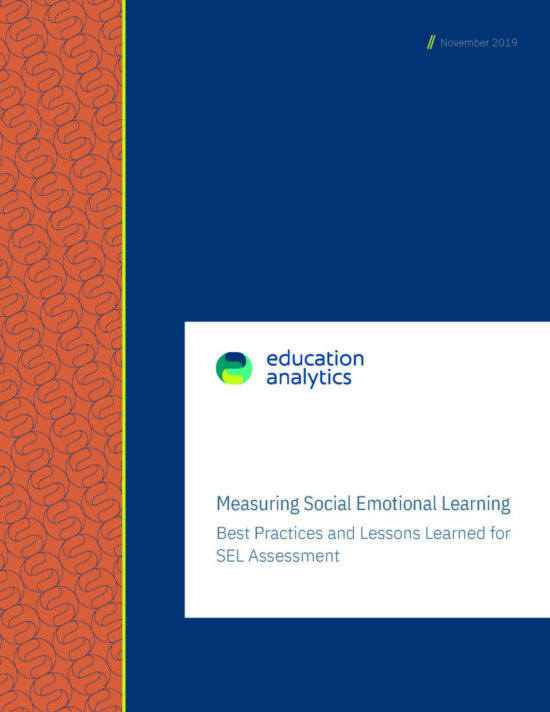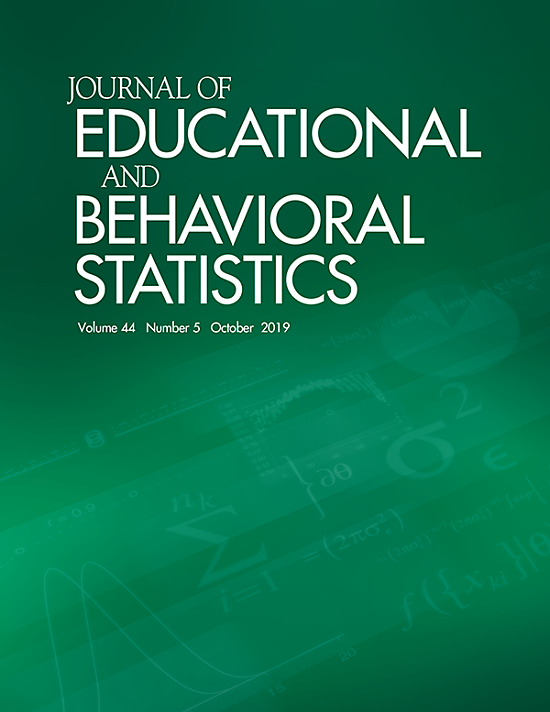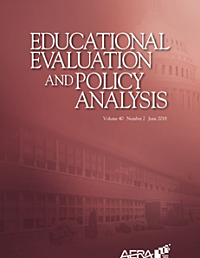We’re motivated by something greater than the bottom-line. We believe in supporting both the health of the education system in the United States and the well-being of each and every student. So we make a point to share what we learn with others who are positioned to make a difference, too.
Filter
- Guides
- COVID-19
- Data Interoperability
- Evaluation
- Growth Measures
- School Metrics
- Social Emotional Learning
- Attendance

SEL Best Practices Guide
This guide outlines the steps that organizations might consider for measuring students’ social and emotional learning (SEL). We highlight the lessons we have learned from the research that Education Analytics has conducted on SEL survey measures. We also discuss future directions of SEL measurement that policymakers and practitioners at the state and district level should consider.
Learn More
About
SEL Best Practices Guide
Can We Measure Classroom Supports for Social-Emotional Learning?
We applied value-added models to student surveys in the CORE Districts to explore whether social-emotional learning (SEL) surveys can be used to measure effective classroom-level supports for SEL. We found that classrooms differ in their effect on students’ growth in self-reported SEL—even after accounting for school-level effects.
Learn More
About
Can We Measure Classroom Supports for Social-Emotional Learning?

School Differences in Social–Emotional Learning Gains: Findings From the First Large-Scale Panel Survey of Students
Using the first large-scale panel surveys of students on SEL, we produced school-level value-added measures by grade for growth mindset, self-efficacy, self-management, and social awareness. We found substantive differences across schools in SEL growth, with magnitudes of differences similar to those for growth in academic achievement, but weaker goodness of fit and smaller across-school variance, suggesting caution in interpreting such measures as causal impacts of schools on SEL.
Learn More
About
School Differences in Social–Emotional Learning Gains: Findings From the First Large-Scale Panel Survey of Students
Measuring Students’ Social-Emotional Learning Among California’s CORE Districts: An IRT Modeling Approach
We analyzed the psychometric properties of items from California's CORE Districts' annual SEL survey. We compared items' functionality across grades, compared student outcomes from IRT models and the classical approach, made suggestions on approaches to modeling and scaling the SEL survey data, and identified items, by grade, that do not contribute positively to measurement of each outcome. We also discussed policy implications in using SEL measures among educators, administrators, policymakers, and other stakeholders.
Learn More
About
Measuring Students’ Social-Emotional Learning Among California’s CORE Districts: An IRT Modeling Approach

The Influence of Rapidly Guessed Item Responses on Teacher Value-Added Estimates
We examined whether rapid guessing behaviors varied by grade, subject, and teacher, and we evaluated if rapid guessing influenced teacher value-added estimates. We found that rapid guessing occurs frequently enough that educators should be mindful of its effect on the interpretations of student test results, but rapid guessing did not appear to affect estimates of teacher performance.
Learn More
About
The Influence of Rapidly Guessed Item Responses on Teacher Value-Added Estimates